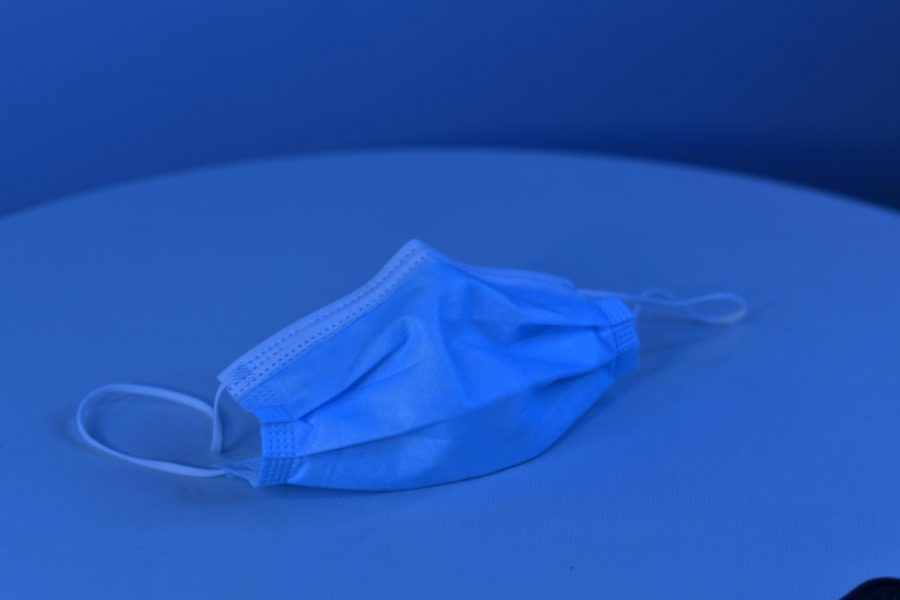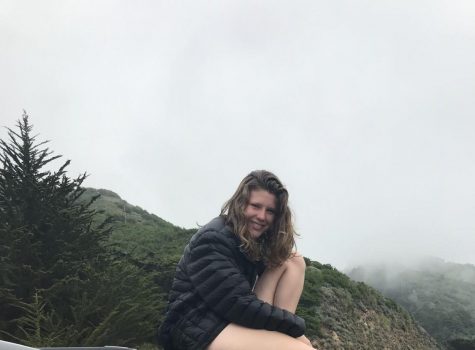Coping With COVID
COVID -19 hit the United States hard with mass shutdowns across the country. For many people, life halted altogether, and students were no exception to this. With numerous schools closing their doors after their designated spring break, students were left to face a totally new challenge: complete isolation from their peers and friends.
Maybe it didn’t start with isolation for many. School may have shut down, but some public spaces were still open enough for teens to meet up and hang out, even if just briefly. But slowly, as more businesses decided to close their doors and the states one-by-one went into lockdown, isolation became more and more prevalent. As a result, students retreated into their homes where they did school work on Zoom and had little to no real contact with anyone outside of their covid bubbles.
Some people found solace in playing video games with strangers online; some found themselves depending on games like Minecraft, Animal Crossing and DOOM: Eternal; and some found themselves binging Netflix shows they’d already seen or completely new ones. In those first few months of lockdown, people found ways to cope in the tiny boxes they were now confined to. However, as time went on and the boxes stayed the exact same size, many people were still trapped in the limited amount of space for a growing, and needed to go out and be with people. The fickle versions of coping, well… they stopped working.
It’s around that time — when school got out, and the restrictions stayed in place, and even when you did see people it wasn’t a lot — that many people developed depression, anxiety, and other stress-related issues caused by the isolation. According to the New York-Presbetaryain Hospital’s ‘Health Matters’, COVID-19 was the perfect storm for developing depression and anxiety. Humans are social creatures and the increasing loneliness that many were forced to face on a day to day basis created an air of hopelessness.
This mental struggle hit a good majority of people, but students? Those who were isolated and alone in their formative teen years when they were supposed to be with friends and family and all those they cared about in the summer; They never stood a chance. According to the Texas Tribune, students across America reported a 30 percent increase in feelings of sadness, unhappiness and depression. It was easy for kids of all ages to fall into these negative feelings. Many felt completely isolated from their peers, completely alone from their friends, with only a few people to interact with day to day. Even when school came back from summer break and Allen allowed students to come back in person (or stay online), these feelings persisted.
The struggle is one of hopelessness. How can anything get better when all we know of this year is that it’s not getting better? How can students go on facing the world, doing school work, and going to classes when there’s an overwhelming sense of melancholy shrouding every aspect of life?
They can start by taking a breath. And then another. And then another. Keep breathing in and out every day, and start to realize that even if the world is falling apart around us there are things we can do, as students and people, to help ourselves out of this COVID slump.
For starters, and for all the students struggling to do any work when faced with the sluggish repetitive nature of day to day activity, reaching out to your teachers is a good place to start. This year is difficult and so many teachers understand that. Getting an extension on some assignments or asking for extra resources can help lessen that pressure that comes with normal school, pressure that is only amplified by COVID schooling. Remember to keep breathing. This year is hard, and all you need to do is manage to keep your head above water. Not sinking, not even swimming, just keeping your head above water.
Taking care of your mental health is monumentally important too — even more important than grades. Learning to recognize the signs of your personal burnout is a good place to start. ‘Am I tired? Am I sad? Am I lacking motivation?’ — all good questions to ask yourself when you start feeling overwhelmed or slow. Burnout is hard to get out of, but preventing it is easier than many people might expect.
Messaging your friends to remind yourself that you have them, scheduling a COVID-safe meet-up, streaming a movie using Google extensions like Teleparty or Watchparty, taking a step back from your laptop or stressors for a few minutes, or simply going outside and sitting in the sun are all ways to pull yourself out of burnout before it even starts.
It’s hard to face your day-to-day life without interaction — so interact. Asking your friends to Facetime, sending a text or Snapchat, talking to them in any way possible are all ways that people can interact and remind themselves that they are not alone in the world. It’s not just brief moments of communication that we need, but full-blown conversations. Reaching out to them is the first step, but talking to them has to be all on your own.
COVID-19 hit hard. It hit students even harder than most. The constant struggles and stress have led to an increase in unhappiness that hasn’t gone away even as the school year has gone on. So this is a call to action: Reach out. Interact. Go forward. The world feels hopeless, but it’s not, and coping with COVID is the first step to realizing that.



